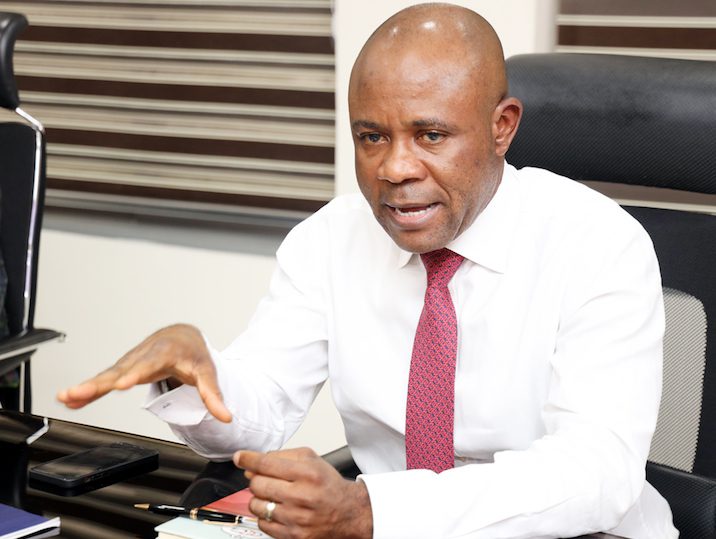Enugu State Governor, Peter Mbah, believes that only bold thinking and an innovative approach to governance can prompt fast economic growth in Nigeria.
Mbah explained that this is necessary due to the country’s type of presidential federalism, which primarily puts the nation’s revenues in the center, thus impeding courageous social and economic development.
Mbah’s media office released a statement on Friday, stating that the governor expressed this view during a lecture titled “Enugu State, Nigeria: New Political Leadership; Bold Economic Vision – Spotlight on the Health and Education Strategies” at the London School of Economics, on Thursday.
According to the statement, Mbah stressed that the challenging times in Nigeria call for unique and unconventional solutions that originate from thinking outside the box.
He stated, “The most daring goal that summarizes what we aim to achieve is our objective to increase the economy of Enugu State seven times. In simple terms, our vision is to raise the state’s GDP from $4.4bn – the current level – to at least $30bn in the next four to eight years.
“Another audacious plan is the commitment to reach a zero percent poverty headcount index in Enugu State.”
However, he noted that accomplishing these targets would heavily rely on the well-being of the state’s workforce, thus highlighting his government’s numerous health projects and innovations, which he claimed were already producing results.
“We are witnessing a decrease, although slight, in infant and maternal mortality rate in our states. We are consistently removing factors that typically cause maternal and under-5 deaths, such as the lack of skilled birth attendants – including doctors, nurses and midwives – at health facilities. From a pre-election statistic of 39 percent, we have raised the number of births attended by skilled health personnel at our facilities to 42 percent. Our aim is to achieve a 100 percent threshold by the end of 2025.
“Additionally, we have significantly expanded immunisation coverage for all childhood vaccine-preventable diseases for children on their first birthday. We have also increased the number of those attending Ante-Natal Care for the first time.
“We’re also constructing new Level 2 healthcare facilities across the 260 electoral wards in our state. Each center has the necessary equipment, sanitation and hygiene facilities, water, living quarters for doctors and nurses, and an alternative power supply.
“Where there is a shortage, especially in terms of doctors and nurses who have been emigrating to the West in large numbers, we conduct regular recruitment drives to reduce the deficit. The aim is to bring the number of doctors in our state to the WHO recommended doctor-to-patient ratio of one doctor to 600 patients,” the governor explained.
He added that no nation has ever exceeded the inherent capacity of its public education, thus emphasizing his administration’s significant investment in education focusing on access, relevance, and quality to drive the transformation.
The government’s funding for education in this year’s budget shows our determination. Our state has allocated N158.78bn for education, which is the highest per person in the country. Also, 33 percent of the total budget is for education, which is the highest in Nigeria and much higher than UNESCO’s recommendation of 15-20 percent. It may be the highest in the world. This means that for every 100 Naira spent, 33 Naira is for the education budget.
Starting from age three, we make sure a child is enrolled in a system that gives them the necessary skills to compete in the future. Children should be able to use what they have learned. This is a fundamental belief of our Smart Schools initiative.
Our Smart Green Schools initiative is a strong and creative response to the education crisis we faced when we took office. We have created enough reasons for parents to send their children to school, including our Free School Meal Plus program for students, which includes a medical program to monitor students' health statistics like growth profile, deficiencies, and vaccine status.
Each Smart School has an interactive digital whiteboard, internet system, robotics and artificial intelligence center, modern ICT center, two science labs, multimedia library, creative production studio, 25 inclusive classrooms, and 700 Android tablets.
Through these, we hope to provide practical knowledge and close the skills gap that makes our students’ future prospects dim in a globalized world,
Due to economic challenges in Nigeria, living costs keep rising, leading residents in some states to hold protests and express their complaints.



